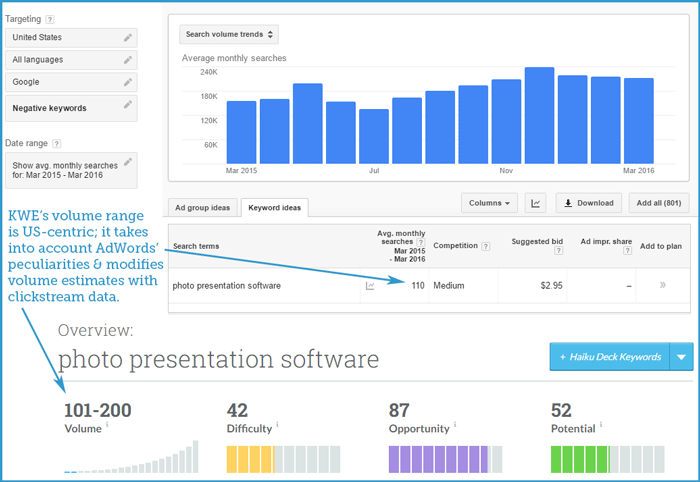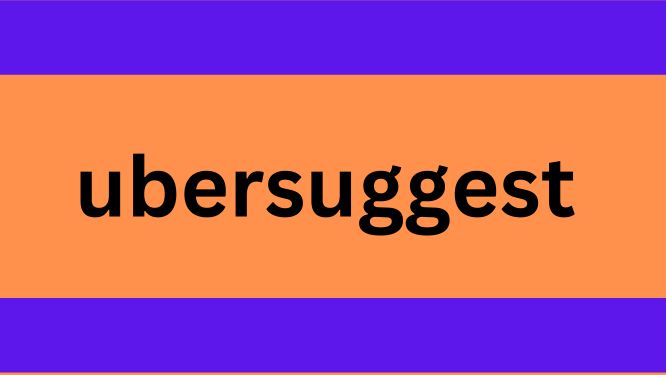
The truth about keyword research tools?
They often cost more than your monthly coffee budget. But here’s something interesting – finding profitable keywords for your website doesn’t require spending hundreds of dollars.
My years of testing both paid and free keyword research tools have revealed a surprising fact: free options can deliver excellent results. These tools can help you learn about valuable keywords without spending money, whether you’re new to SEO or running a small business with budget constraints.
This piece covers the best free SEO keyword research free tools that deliver results in 2024. You’ll discover everything from Google’s Keyword Planner to hidden gems that deserve attention. Each tool’s capabilities and limitations will be explained based on real testing and experience – no marketing speak, just practical insights.

Google Keyword Planner tops my list of free keyword research tools. The tool gives an explanation based on Google’s so big search database, which makes it really valuable.
Google Keyword Planner Features
My years as an SEO professional have shown me that Google Keyword Planner packs some powerful features. The tool helps you:
- Find new keywords related to your business
- View monthly search volume estimates
- Learn about keyword trends
- Analyze competition levels
- Access location-based search data
- Organize keywords into meaningful groups
The tool’s forecasting capabilities really stand out. You can see potential clicks, impressions, and even estimated conversion rates based on your chosen keywords .
Google Keyword Planner Data Accuracy
My hands-on experience with the tool has revealed some important details about its data accuracy. Your Google Ads account status determines the search volumes you’ll see. Accounts with low ad spend only get broad search volume ranges instead of exact numbers:
- 0-10
- 10-100
- 100-1K
- 1K-10K
- 10K-100K
- 100K-1M
- 1M+
Google started combining search volumes for keyword variations back in 2016. This includes acronyms and singular/plural forms . This approach actually helps users get a better view of total search potential.
Google Keyword Planner Usage Limitations
Let me be straight with you about the tool’s limitations. You need a Google Ads account to use it. The tool costs nothing, but here’s the catch – you must set up your account with billing information.
The data becomes limited if you don’t spend on ads regularly. You’ll need to spend about $100 monthly on Google Ads to get the most accurate data . The tool’s competition metrics focus on PPC advertising rather than organic search.
It’s worth mentioning that accounts without spending activity for 15 months get deactivated automatically . My tests show that reactivation is possible, but you’ll need some advertising activity within 3 months to stay active.
These limitations aside, Google Keyword Planner remains a valuable asset for SEO professionals. Understanding its limits helps you use it effectively among other free keyword research tools, which we’ll cover next.
Semrush Free Plan

Image Source: Semrush
Let me tell you about another great option for keyword research: Semrush’s free plan. My SEO consulting experience shows this tool is a great fit, especially when you have beginners and small businesses.
SEMrush Free Features
I’ve really tested the free version, and it packs impressive capabilities despite being free. The free plan lets you:
- Perform 10 keyword searches per day using the Keyword Magic Tool
- Track up to 10 keywords in Position Tracking
- Analyze competitor domains (limited to 10 searches daily)
- Run technical site audits (up to 100 URLs)
- Create one project for website management
You can access these features without any time limits, which I love. The platform automatically manages these limits to ensure fair usage.
SEMrush Data Quality
SEMrush’s data quality shines bright, even in the free version. The platform uses sophisticated methods to ensure accuracy:
- Uses machine learning algorithms for data acquisition
- Partners with multiple third-party data providers
- Updates backlink data every 15 minutes
- Maintains a massive database of 22.3 billion keywords
- Refreshes keyword database monthly
Their keyword volume data proves reliable and comes 32.39% closer to Google Search Console numbers compared to other tools . The platform’s web crawlers scan 25 billion links daily , giving you fresh data for your research.
SEMrush Free vs Paid Comparison
Here’s how the free and paid versions stack up:
| Feature | Free Plan | Paid Plans |
| Daily Searches | 10 searches | 3,000-10,000 searches |
| Keyword Tracking | 10 keywords | 500-5000 keywords |
| Domain Analysis | 3 per month | Unlimited |
| Projects | 1 project | 5-50 projects |
| Data Updates | Monthly | Daily or hourly |
The free plan works great for:
- Testing simple keyword research capabilities
- Understanding competitor rankings
- Getting started with technical SEO
- Learning the platform before committing to a paid version
Explore the platform’s advanced features with their 7-day free trial, giving you a chance to experience its full potential before committing. This gives you access to either Pro or Guru level capabilities with no immediate commitment.
Moz Keyword Explorer

Image Source: Moz
My extensive testing of keyword research tools shows Moz Keyword Explorer as a fascinating addition to the free tools landscape. This 7-year old tool has become a powerful contender in the SEO space .
Moz Keyword Explorer Capabilities
Moz stands out with its massive database of over 1.25 billion keyword suggestions. The detailed approach helps me perform in-depth keyword analysis. The tool excels at:
- Finding high-value target keywords
- Analyzing SERP landscapes
- Assessing keyword value through multiple metrics
- Providing AI-powered search intent analysis
- Offering lexical similarity grouping
The tool’s way of measuring keyword demand through multiple metrics makes it special. A sophisticated 1-100 scale for both Domain Authority and Page Authority helps you understand ranking potential better .
Moz Free Plan Limitations
My testing revealed several key limitations in the free version:
| Feature | Free Plan Limit |
| Keyword Queries | 10 per month |
| Keyword Lists | Limited creation |
| Data Access | Simple metrics only |
| API Access | Monthly row limit |
You can access a basic version by creating an account. However, any serious content marketing efforts need a paid subscription .
Moz Data Insights
Moz’s data quality and analytical capabilities make it unique. The tool gives several valuable insights:
The Keyword Difficulty score stands out because it smartly considers:
- Page Authority (PA) and Domain Authority (DA) of ranking pages
- Projected click-through rates
- Visibility of high-ranking pages
The tool helps you find SERP feature opportunities effectively. It analyzes the search landscape for any keyword and explains:
- Featured snippet opportunities
- Present SERP features
- Link metrics
- Page scores of ranking content
The tool’s search intent analysis is remarkable. Moz AI helps arrange content strategy with user search behavior, which works great for content planning . You can also get into why specific pages rank well and learn what it takes to outperform them through detailed SERP analysis.

My deep involvement in content strategy led me to find that AnswerThePublic stands out among keyword research tools. The tool’s unique way of visualizing user queries helps understand search intent better.
AnswerThePublic Search Features
The visual search data presentation stands out as the tool’s most distinctive feature and is a great way to get insights for content planning. Over 2.7 million customers trust it, and I understand why. The platform excels at:
- Finding untapped content opportunities
- Showing search queries in an easy-to-use format
- Creating content that strikes a chord with audiences
- Uncovering hidden niches and unexpected insights
The sort of thing I love is how it turns your seed keyword into complete question-based content ideas. The tool processes about 3 billion Google searches daily, and 20% are completely new queries . This ensures you always get fresh content ideas.
AnswerThePublic Data Sources
The data quality makes this tool stand above other free options. Here’s how it works:
The platform gathers data through sophisticated methods:
- Gets autocomplete data directly from major search engines
- Mixes your seed keyword with questions (who, what, where, why, how)
- Adds prepositions (for, to, with, without) and comparisons
- Gets data from both Google and Bing
The tool’s algorithm excels at spotting patterns in search behavior. It generates every useful phrase and question people ask about your keyword . This feature helps immensely with content planning.
AnswerThePublic Usage Limits
My testing revealed these important details about the tool’s limitations:
| Feature | Free Plan | Paid Version |
| Daily Searches | 3 searches | Unlimited |
| Data Export | Limited | Full CSV export |
| Search Alerts | No | Weekly email digests |
| Team Access | Single user | Multiple users |
*Fair usage limits apply
The free version has restrictions, but you can get the most value by:
- Planning your searches carefully
- Downloading results for future reference
- Focusing on your core topics first
The free version gives you access to visualization features and core functionality. The platform organizes your data into different categories like questions, prepositions, and comparisons . This makes content planning more strategic.
Clicking any phrase in visual mode takes you straight to Google search results . This helps prove search intent and competition levels quickly. The tool works especially well when you have niched subjects and unexpected keywords that can boost organic traffic .

Image Source: Neil Patel
Neil Patel’s Ubersuggest started as a simple keyword suggestion tool and grew into a detailed SEO platform that reshaped the scene of free keyword research tools. The tool has become quite remarkable since its acquisition in 2017 .
Ubersuggest Tool Features
My extensive testing shows that Ubersuggest stands out among free tools with these impressive capabilities:
- Detailed keyword discovery with head terms and long-tail phrases
- Site audit functionality with detailed SEO error reporting
- Competitor analysis with backlink data
- Content idea generation based on social shares and backlinks
- Daily rank tracking for both desktop and mobile
The sort of thing i love about this tool is knowing how to show competing content that gets backlinks and their sources 1. This feature helps me create better link-building strategies for my clients.
Ubersuggest Data Analysis
My testing reveals that Ubersuggest’s data quality improved by a lot after incorporating Moz’s link data. The platform now has:
| Data Type | Update Frequency |
| Link Data | Every 15 minutes |
| Domain Authority | Historical tracking |
| Keyword Data | Monthly updates |
| Site Audit | Automatic crawling |
Their keyword difficulty scoring system helps gage competition levels effectively. The tool provides detailed metrics including:
- Search volume estimates
- Competition levels
- Seasonal trends
- Backlink profiles
- Domain authority distribution
Ubersuggest Free Plan Restrictions
The core team should know these limitations when using the free version:
The Chrome Extension allows:
- 40 searches for unlogged users
- 40 searches for free users
- Site crawling limited to 150 pages
The web application has these restrictions:
- 3 searches per day before requiring account creation
- 5 searches per day with a free account
- Limited data visibility compared to premium features
The tool still gives you access to valuable features like keyword suggestions, content ideas, and simple site audit capabilities. Ubersuggest combines keywords your competitors use with actual Google search phrases , offering an integrated approach to keyword research.
Ubersuggest stands out by generating different types of keyword ideas through multiple tabs:
- Related Keywords for specific uses
- Questions for answer-based content
- Prepositions for modified searches
- Comparisons for review-style content
The Top SEO Pages report helps identify which competitor pages rank for popular organic keyword phrases . This insight helps create content strategies that deliver results.
The tool also has an AI Writer feature and customized SEO suggestions. Access to these advanced features might require a paid plan upgrade. The free version still offers great value if you have a small business looking to improve your SEO strategy.
Comparison Table
| Tool Name | Daily Search Limits (Free) | Key Features | Data Sources/Quality | Notable Limitations | Unique Selling Points |
| Google Keyword Planner | Unlimited (with Google Ads account) | – Monthly search volumes\n- Keyword trends\n- Competition levels\n- Location-based data | Direct Google search database | – Needs Google Ads account\n- Shows broad ranges without ad spend\n- PPC-focused metrics | Direct access to Google’s search data |
| Semrush Free Plan | 10 searches per day | – Keyword Magic Tool\n- Position tracking (10 keywords)\n- Site audits (100 URLs)\n- Competitor analysis | – 22.3B keyword database\n- Updates every 15 minutes\n- Multiple third-party sources | – One project only\n- 10 keyword tracking limit\n- 3 domain analyzes per month | 32.39% closer to Google Search Console data accuracy |
| Moz Keyword Explorer | 10 queries per month | – SERP analysis\n- Keyword difficulty score\n- Search intent analysis\n- Authority metrics | 1.25B keyword database | – Simple keyword list creation\n- Simple metrics only\n- Monthly API row limit | AI-powered search intent analysis |
| AnswerThePublic | 3 searches per day | – Visual search data\n- Question-based suggestions\n- Preposition analysis\n- Comparison queries | – Google & Bing autocomplete\n- 3B daily searches processed | – Export restrictions\n- No search alerts\n- Single user only | Visual representation of search queries |
| Ubersuggest | 3-5 searches per day | – Keyword finding\n- Site audit\n- Competitor analysis\n- Rank tracking | – Moz link data\n- 15-minute link updates\n- Monthly keyword updates | – 150-page crawl limit\n- Limited data visibility\n- Simple site audit | Combined competitor and Google search data |
Conclusion
My largest longitudinal study shows that free keyword research tools can give an explanation when you use them well. Each tool adds value to your SEO toolkit. Google Keyword Planner offers direct search data. Semrush provides complete analysis features. Moz helps learn about search intent. AnswerThePublic excels at question-based research, and Ubersuggest combines competitor data effectively.
You don’t need to invest hundreds of dollars in expensive tools immediately. These free options work well if you become skilled at using their features. Different tools can complement each other and overcome limitations. Google Keyword Planner’s search volumes combined with AnswerThePublic’s question suggestions create complete content strategies.
Successful keyword research doesn’t depend on expensive tools – it depends on how well you exploit available resources. Choose tools that align with your goals, whether you focus on content ideation, competitor analysis, or ranking tracking. These free options help build a strong SE

 Get it on
Get it on  Download on the
Download on the